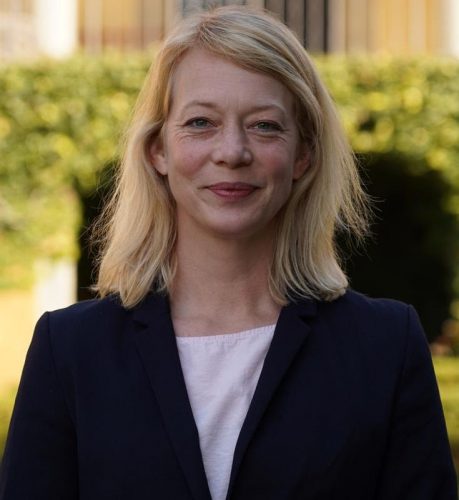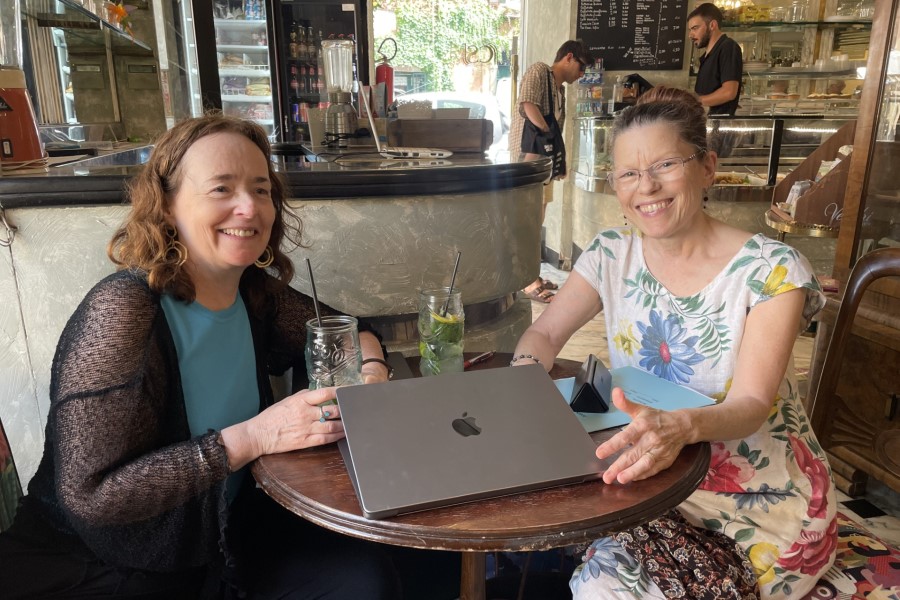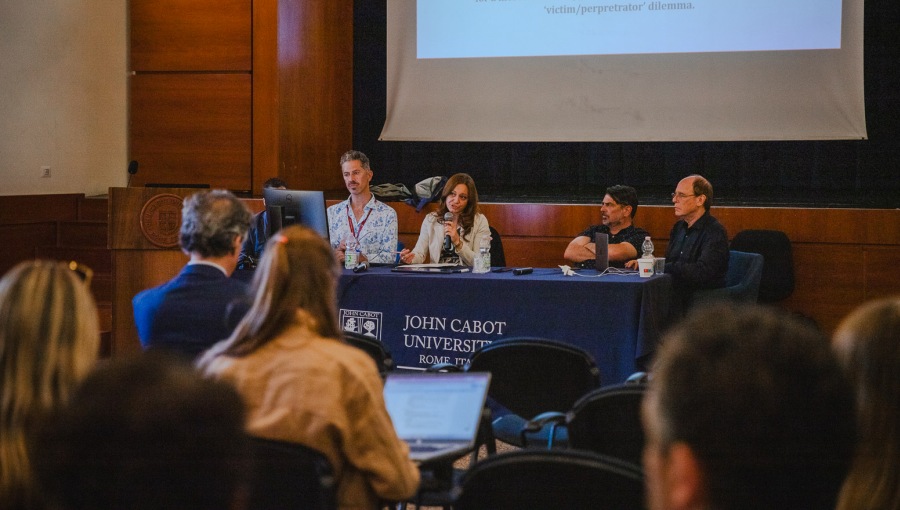Teaching as a Conversation: Professor Simone Tholens
Originally from Norway, Professor Simone Tholens joined JCU’s Department of Political Science and International Affairs in September 2022. She holds a Ph.D. in International Relations from the European University Institute (EUI) in Florence, Italy. She has worked as a research fellow at the EUI, as Lecturer at Cardiff University, and as adjunct professor at Johns Hopkins SAIS in Bologna. Professor Tholens currently teaches World Politics and will be teaching European Security Issues after the Cold War in Spring 2023.

Simone Tholens
What are the rewards and challenges of teaching at the university level?
Teaching at university is a real privilege. Meeting young people during their formative years, and contributing to their development is an amazing experience. Students challenge me all the time, and I do my best to challenge them. Having taught at different universities, in different countries, and at different levels, I have come to realize that university can be a truly transformative experience. Of course, the challenges of teaching are plenty, including fostering a friendly environment where everyone feels safe to share their views and thoughts, and where everyone feels seen and engaged, but if we see it as one big learning laboratory, it can be a rewarding experience for all.
Tell us about your ongoing research projects. What have been your most unexpected research findings so far?
My research focuses on the relationship between the international and the local in contexts of armed conflict and interventions. What happens when external actors get involved in local conflicts, post-conflict reconstruction, and long-term peacebuilding? My first finding is that the distinction between international and local is crude and artificial, and so my work is concerned with capturing how joint ‘assemblages’ – i.e. fields or regimes of discourses, material artifacts, policies, and logics – shape conditions and change trajectories in conflict contexts. I have worked on this for 15 years in a range of contexts and across policy fields: disarmament in Kosovo and Cambodia; Border Management in Lebanon; Security Sector Reform in Aceh, Indonesia; and Security Assistance in the wider Mediterranean. My ongoing research includes a project on the making of ignorance (i.e. the discourse-material processes that determine what we don’t know, and perhaps can’t know) in the contexts of interventions, and also a book project on knowledge production in and of security assistance called Assembling Security Assistance: Knowledge, Networks and Materiality of a Global Practice.
What’s your teaching philosophy?
I consider teaching as a big conversation. And as in any conversation, the most important bit is not necessarily the answer, but the question. I try to focus on formulating good questions and have students learn to do the same. There is nothing more rewarding than seeing students develop an inquisitive mind, matched with skillsets to pose tough questions. Teaching mainly security and conflict studies, I also try to challenge their preconceptions by drawing on a variety of sources, including audiovisual, that can aid the process of unpacking the ideas they come to class with, and expand their mental frames for reading and analyzing international security.
What advice would you give to students studying Political Science, and who wish to pursue a career in this field?
With politics and international affairs, you’ll never be bored. Politics is everywhere, and the study of politics is an ever-expanding field. We need young people to turn the page on a lot of big challenges facing the world. Whether you want to go into politics, government, international institutions, non-governmental organizations, or any other job imaginable, politics will always be at the heart of it. Higher education in this field will open your eyes to how you can make a difference in the world.
What’s your impression of JCU so far?
John Cabot seems to be a very special place. The friendly, competent, and creative spirit that I have encountered here in my first months has both impressed me and made me grateful for the chance to be a part of this community. I have lived and traveled in South-East Asia, Australia, Belgrade, Berlin, Oslo, and Amsterdam, and while the world is my home, I have a soft spot for Italy, so landing in Rome feels great!





